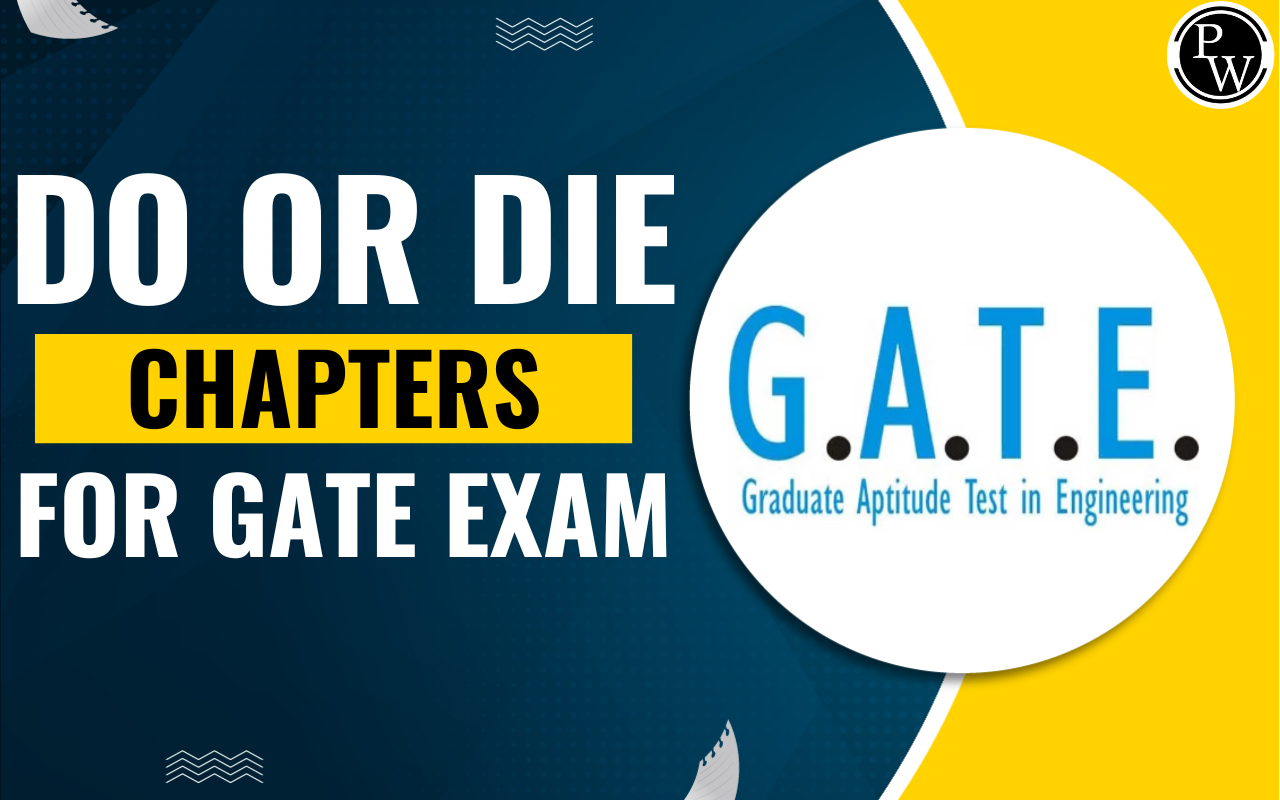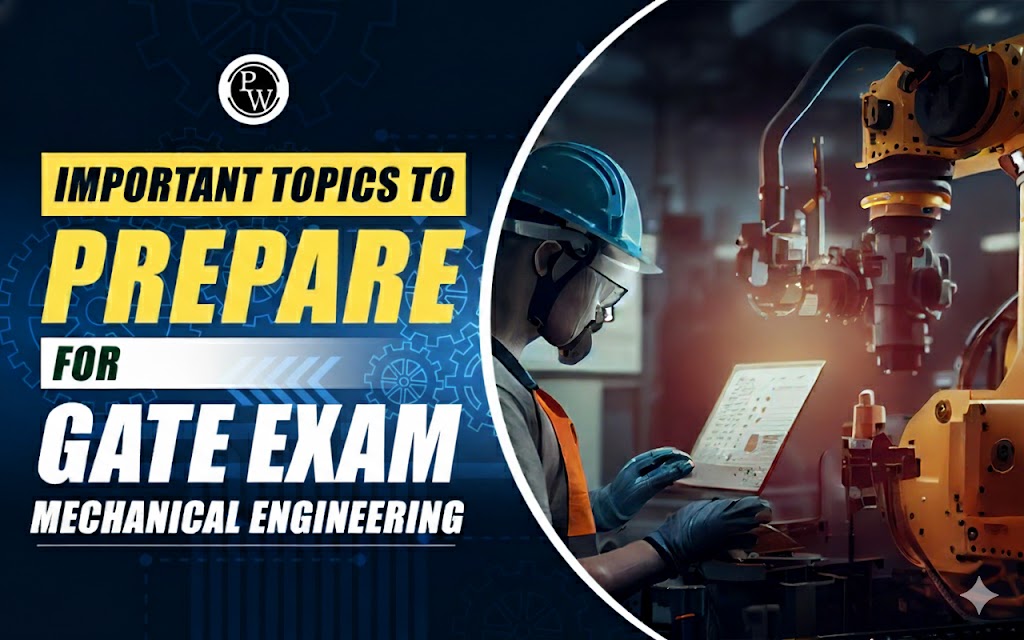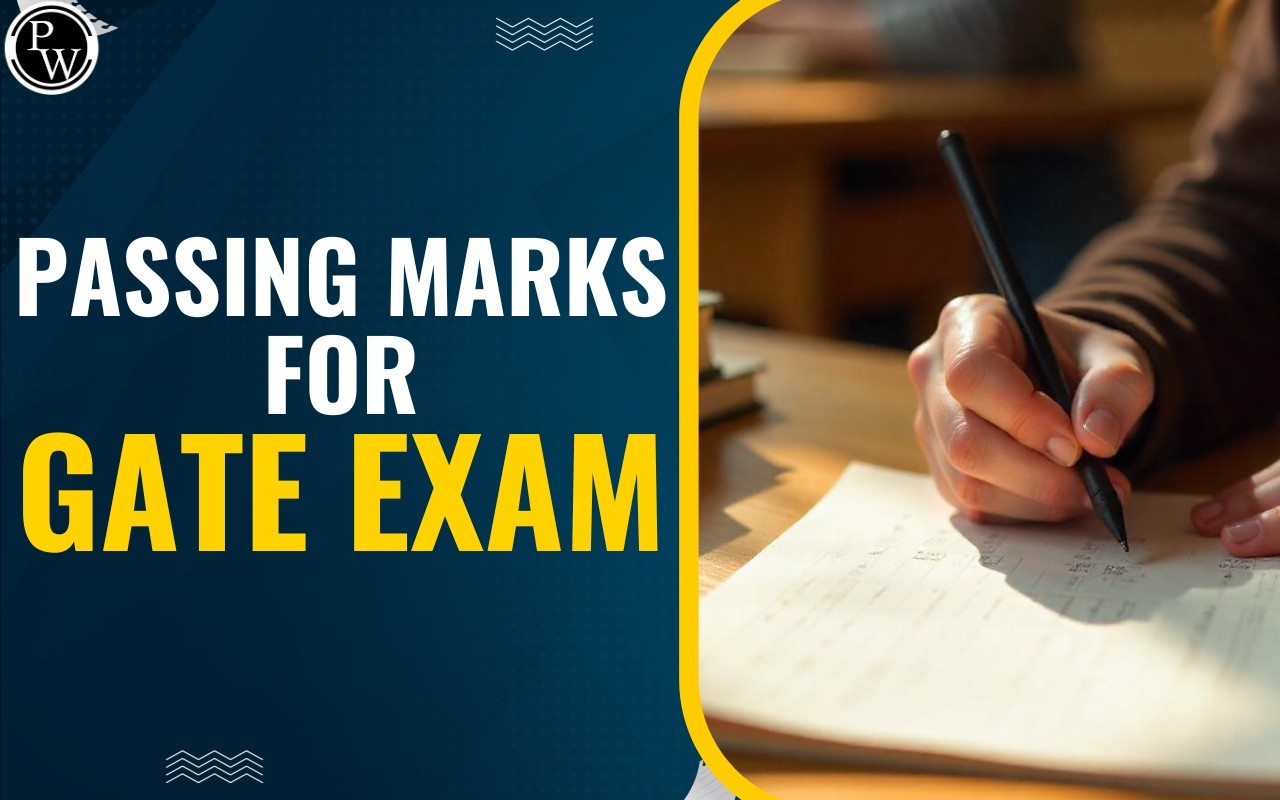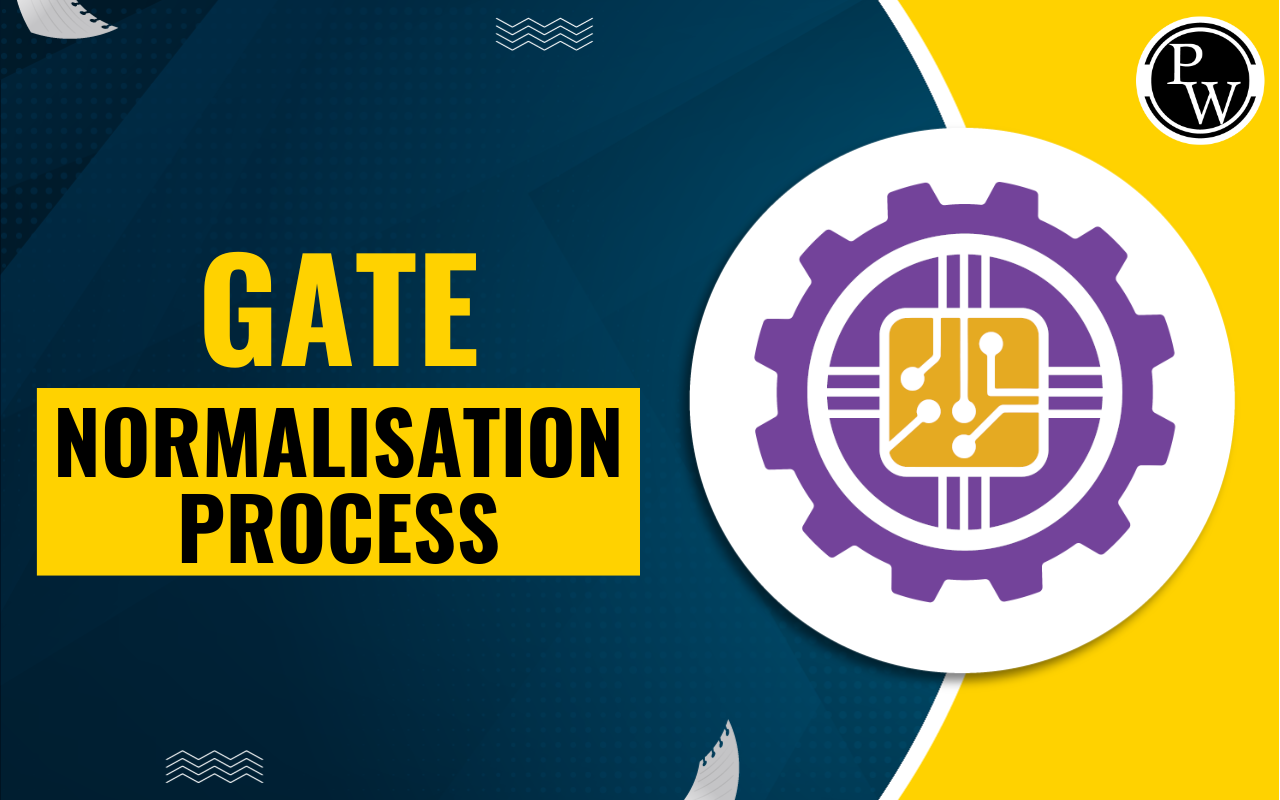
Core vs Interdisciplinary Branch for GATE: The Graduate Aptitude Test in Engineering is conducted for a range of Engineering and Science disciplines. The GATE 2024 Exam was organized for 30 different branches. Candidates can choose the branch in the GATE Exam as per their eligibility criteria and choice. The engineering branches are classified into two categories viz core branches and interdisciplinary branches.
The core branches of engineering refer to the oldest and traditional branches which are the foundation of other specializations. Interdisciplinary branches are the sub-parts of the fundamental disciplines to make advancements in learning about the specific parts. For the GATE Exam, applicants may choose the combination of two papers to explore more career opportunities. Here, you can find the core vs interdisciplinary branches for GATE and make a well-informed decision to choose the best branch.
GATE Core and Interdisciplinary Branches
The GATE Exam is conducted for 30 different branches to offer postgraduate admission to premier institutions like IITs, NITs, IIITs, and others. Additionally, the GATE Score offers reputed Public Sector Undertaking Jobs in top-notch organizations like NPCIL, BHEL, SAIL, ISRO, DRDO, GAIL, ONGC, etc. Candidates may opt for the best branches for GATE while submitting online applications for the GATE Exam. The selection of core and interdisciplinary branches for GATE depends on the individual's choice, interest, and career aspirations.
The core branches for GATE include Civil Engineering (CE), Computer Science and Information Technology (CS), Electrical Engineering (EE), Electronics and Communication Engineering (EC), Mechanical Engineering (ME), Chemical Engineering (CH), Instrumentation Engineering (IN), Biotechnology (BT), Mining Engineering (MN), Metallurgical Engineering (MT), and Petroleum Engineering (PE) and multidisciplinary branches Engineering Sciences (XE), Life Sciences (XL), Textile Engineering and Fibre Science (TF), etc.
Mostly the aspirants prefer core branches for GATE due to its popularity and immense career options but there is also a scope of multidisciplinary branches for job prospects. Candidates must go through the list of Core vs Interdisciplinary branches for GATE in this informative guide.
Also Read: GATE 2025 Preparation Strategy
Branches for GATE
The Graduate Aptitude Test in Engineering tests the comprehensive knowledge of technical subjects of individuals up to the undergraduate level. For GATE, there are 30 different branches available which are tabulated below with their branch codes:
| Branches for GATE Exam | ||
| Sl. No. | GATE Branches | Branch Codes |
| 1. | Aerospace Engineering | AE |
| 2. | Agricultural Engineering | AG |
| 3. | Architecture and Planning | AR |
| 4. | Biomedical Engineering | BM |
| 5. | Biotechnology | BT |
| 6. | Civil Engineering | CE |
| 7. | Chemical Engineering | CH |
| 8. | Computer Science and Information Technology | CS |
| 9. | Chemistry | CY |
| 10. | Data Science and Artificial Intelligence (Newly Added) | DA |
| 11. | Electronics and Communication Engineering | EC |
| 12. | Electrical Engineering | EE |
| 13. | Environmental Science and Engineering | ES |
| 14. | Ecology and Evolution | EY |
| 15. | Geomatics Engineering | GE |
| 16. | Geology and Geophysics | GG |
| 17. | Instrumentation Engineering | IN |
| 18. | Mathematics | MA |
| 19. | Mechanical Engineering | ME |
| 20. | Mining Engineering | MN |
| 21. | Metallurgical Engineering | MT |
| 22. | Naval Architecture and Marine Engineering | NM |
| 23. | Petroleum Engineering | PE |
| 24. | Physics | PH |
| 25. | Production and Industrial Engineering | PI |
| 26. | Statistics | ST |
| 27. | Textile Engineering and Fibre Science | TF |
| 28. | Engineering Sciences | XE |
| 29. | Humanities and Social Sciences | XH |
| 30. | Life Sciences | XL |
List of Core Branches for GATE
The core branches are considered the base of other Engineering disciplines. These branches include the study of core technical concepts to solve daily life engineering problems and it is highly recommendable. Here, the list of core branches for GATE is mentioned for your reference:
- Aerospace Engineering (AE) - It focuses on the design, development, and testing of aircraft and spacecraft and their related systems like aerodynamics, propulsion, structures, and avionics.
- Agricultural Engineering (AG) - It focuses on the study of engineering concepts to solve the concerning agricultural problems and to improve the efficiency of machinery involved to enhance the production of crops.
- Civil Engineering (CE) - Civil Engineering involves designing, developing, and maintenance of naturally and physically built structures like dams, roads, bridges, buildings, highways, etc.
- Computer Science and Information Technology (CS) - It focuses on the study of computer hardware and software with algorithms to solve major engineering problems innovatively.
- Chemical Engineering (CH) - It deals with the study of designing useful products using chemical processes. This specialization applies to various sectors like pharmaceuticals, nuclear plants, healthcare, etc.
- Electrical Engineering (EE) - It involves the study of electrical and electronic equipment and their applications to power generation, transmission, and distribution.
- Electronics and Communication Engineering (EC) - It focuses on the study of electronic circuits, devices, and communication systems, including telecommunication, embedded systems, and signal processing.
- Mechanical Engineering (ME) - It focuses on the design, development, and testing of mechanical components. It involves a wide range of applications in manufacturing, designing, robotics, and more.
- Mining Engineering (MN) - Mining Engineering is a study of processes and technologies to extract minerals and valuable resources from the earth's surfaces.
- Metallurgical Engineering (MT) - It involves the study of properties and behavior of various metals to produce useful products.
- Petroleum Engineering (PE) - It focuses on the study of exploration, extraction, and production of oil and gas resources.
List of Interdisciplinary Branches for GATE
The interdisciplinary branches are derived from core specialization that focuses on the specific area of engineering. The multidisciplinary branches listed for GATE are as follows:
- Architecture and Planning (AR) - It focuses on planning and designing structures using engineering techniques to produce a strong and reliable infrastructure.
- Biotechnology (BT) - Biotechnology engineering is the study of microorganisms, chemistry, genetics, and biological terms to provide innovative solutions for common problems.
- Data Science and Artificial Intelligence (DA) - It involves the study of huge data and techniques to manipulate it into a useful form.
- Engineering Sciences (XE) - Engineering Science involves the study of engineering concepts and technology in a wide range of specializations.
- Environmental Science and Engineering (ES) - It involves the study of the environment and innovative techniques to solve environmental issues related to air, water, and soil pollution, waste management, and sustainable development.
- Geomatics Engineering (GE) - Geomatics Engineering is known for its rich history as a knowledge epicenter of surveying techniques for Science and Civil engineering projects.
- Geology and Geophysics (GG) - It involves the study of geology and geophysics concepts and equipment.
- Humanities and Social Sciences (XH) - It involves the study of non-engineering subjects like history, economics, political science, philosophy, arts, and literature.
- Instrumentation Engineering (IN) - It focuses on the design, development, and maintenance of control systems. It involves the monitoring of measuring equipment, ensuring their safety, and testing of control devices.
- Life Sciences (XL) - It Includes the study of various subjects concerning daily life applications such as Chemistry, Biochemistry, Botany, Microbiology, Zoology, Food Technology, etc.
- Naval Architecture and Marine Engineering (NM) - It focuses on the design, development, and testing of naval and marine infrastructure.
- Production and Industrial Engineering (PI) - It specializes in the learning of production technology and its applications adopted in industries.
- Textile Engineering and Fibre Science (TF) - It focuses on the study of the production of clothes and their accessories using cotton, fibers, yarns, and other materials.
GATE Paper Pattern
Candidates must have a thorough understanding of the paper pattern to choose the best branch for the GATE Exam. The GATE Score opens the doors of numerous career opportunities like PG admission, PSU Jobs, Research Career, MNC Jobs, and admission to foreign universities. A detailed GATE Exam Pattern 2024 is mentioned below for the candidates must refer to:
| GATE Exam Pattern 2024 | |
| Particulars | Description |
| Exam Name | GATE |
| Duration | 3 hours |
| Exam mode | Computer-Based Test(CBT) |
| Type of questions |
|
| No. of questions | 65 |
| Total Marks | 100 |
| GATE Number of Sections | Two/ Three (depending on the paper) |
| GATE Section-wise Number of Questions |
|
| GATE Section-wise Weightage |
|
| Marking Scheme | Each correct answer in the exam will be awarded either 1 or 2 marks. |
| GATE Negative Marking |
|
Core vs Interdisciplinary Branch for GATE FAQs
Q. What are the core branches of engineering?
Q. What are interdisciplinary engineering branches?
Q. Where can I find Core vs Interdisciplinary branches for GATE?










